Graham Reid | | 4 min read
Phillips' Theme
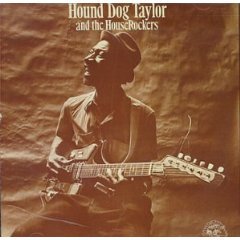
Although the blues can be a sophisticated music, there's something more earthy, vibrant and appealing about it when it is played from somewhere further south than the cerebral cortext.
Hound Dog Taylor played from a point somewhere between the heart, the gut and the groin -- and made the most thrilling music to come out of the Chicago blues scene in the late Sixties/early Seventies.
The life and music of Theodore Roosevelt Taylor was emblematic of the journey the blues made from the back porch and juke joints of the South to the tough bars and taverns of Chicago's South Side.
Born in Natchez, Mississippi in 1915 the young Taylor -- who didn't start playing until he was 20 and worked as a sharecropper -- gravitated to the slide style of Elmore James and played local juke joints. He moved to Chicago in his mid 20s after the Klan burned a cross in his yard.
He played raw, barbed wire boogie on cheap Japanese guitars (which gave him his signature sound) in clubs and at the market on Maxwell Street, and didn't become a fulltime musician until he was in his early 30s.
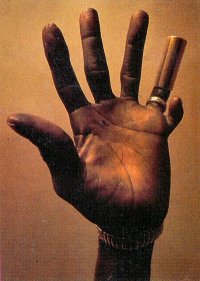 Taylor was without any gimmick (unless you think six fingers on his left hand was a gimmick) and he kept the music plain, hard, loud and direct. At a time when white blues players were using filigrees and Indian microtones, Taylor and his band blew like a whiff of foul, unfiltered and tobacco-filled air through the blues. His straight-ahead sound was as necessary as it was essential in the days post-Cream and Jimi Hendrix.
Taylor was without any gimmick (unless you think six fingers on his left hand was a gimmick) and he kept the music plain, hard, loud and direct. At a time when white blues players were using filigrees and Indian microtones, Taylor and his band blew like a whiff of foul, unfiltered and tobacco-filled air through the blues. His straight-ahead sound was as necessary as it was essential in the days post-Cream and Jimi Hendrix.
Taylor and his band (just a drummer and a second guitarist, so the sound was wiry and thin but cut through the noise of bars like Florence's Lounge where they played) inspired the likes of George Thorogood who appreciated the blues as a drinking, working class music which had a cathartic quality at the end of a hard day of manual labour or the boss looking over your shoulder.
That said, Taylor -- on something like Phillips' Theme on this, his debut album -- could conjure up the spirit of Hendrix if Jimi had worked the same tough circuit: Taylor could stagger and bend notes, pile them up in a rush or pull a single sustain that seemed to last until the ice melted in your tumbler. And then he'd hit a boogie riff and you'd be up and dancing.
Taylor impressed Bruce Iglauer who, as a white blues fan from Chicago, wanted to get him signed to Delmark Records where he [Iglauer] was working -- but when the company passed Iglauer started Alligator Records; got Taylor, drummer Ted Harvey and guitarist Brewer Phillips into a studio; and recorded this album live over two nights.
Live and direct -- the way Taylor deserved to be heard.
The self-titled Hound Dog Taylor and the HouseRockers album was Alligator's first release and remains an extraordinary slice of blood-red, whisky-slammin' Chicago blues.
Taylor threw in three pieces by Elmore James (including a white heat version of Wild Aboiut You Baby and a deep It Hurts Me Too, the latter which John Mayall had brought to attention of white audiences in the British blues boom of the mid Sixties) but most of the brittle, slippery and abrasive songs were by Taylor himself.
Robert Christau referred to the band as "the Ramones of the blues" -- meaning they stripped the music to its essence -- and they weren't too concerned with niceties, always getting the right notes or anything approaching polish. And Iglauer understood, and as a producer captured, that.
As Garth Cartwright notes in his journey through American music More Miles Than Money, "Alligator's served as home to Hound Dog Taylor, Albert Collins, Charlie Musselwhite, Son Seals and Koko Taylor, capturing post-civil-rights blues like no one else, music rural in origin but blunted, pessimistic, from decades in the urban ghetto. The rise of [the blues label] Fat Possum, with its punk-rock ethos made Alligator look old-fashioned -- a paradox of sorts when considering the likes of Hound Dog Taylor and Son Seals made music tougher, more dissonant, than Iggy and Black Flag."
Hound Dog Taylor and the HouseRockers were the real deal, rowdy and undisciplined, liberating, and party music. Unsophisticated perhaps, but thrilling.
Even on record.
With Taylor and Phillips alternating on lead there is also a texture lacking in most other blues albums, and their energy and enthusiasm is palpable. Iglauer said the band just plugged in and played, simple as that. It certainly sounds like it.
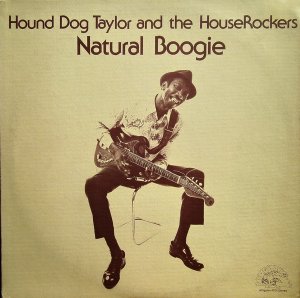 The album sold well, they recorded the equally good Natural Boogie a few years later in a similar, footstomping manner -- and that was it.
The album sold well, they recorded the equally good Natural Boogie a few years later in a similar, footstomping manner -- and that was it.
Taylor died of lung cancer in late '75.
Some posthumous releases came out (including some material left over from these sessions) but it seemed cruel that this natural, uninhibited and joyous talent should have had so few years on bigger stages than that at Florence's Lounge. Certainly he toured internationally to great acclaim, but for a mere three years.
Hound Dog Taylor was inducted into the Blues Foundation Hall of Fame in '84 and 12 years later this album received the Foundation's award for a Classic Blues Recording. In '98 guitarists Thorogood, Sonny Landreth, Vernon Reid of Living Colour, Son Seals, Li'l Ed and the Blues Imperials and others contributed to a tribute album to Taylor.
You don't have to be too smart to hear how the White Stripes and the Black Keys (and others) have leaned on Taylor's music.
Hound Dog's most famous and oft-repeated quote was, "When I die they'll say, 'he couldn't play shit but he sure made it sound good.' "
Not entirely true. But true enough.
These Essential Elsewhere pages deliberately point to albums which you might not have thought of, or have even heard . . .
But they might just open a door into a new kind of music, or an artist you didn't know of. Or someone you may have thought was just plain boring.
But here is the way into a new/interesting/different music . . .
Jump in.
The deep end won't be out of your depth . . .

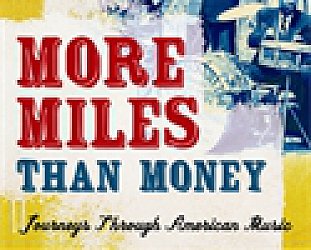
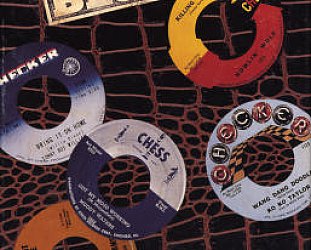
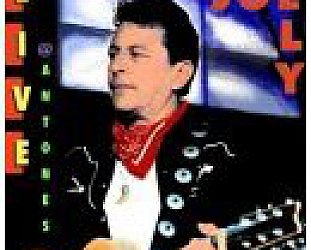

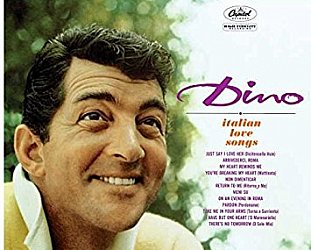
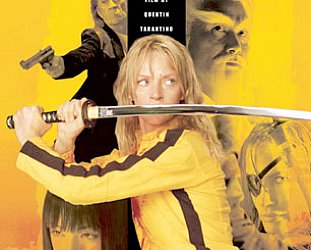
rob - Jan 12, 2010
Dang, I had that record. It was great: raucous, earthy, a shot-in-the-arm.
SaveWish I still had it: lost a great swag of records- nicked, I'm pretty sure, by a kid who lived in the other half of a semi-detached flat.
a lot of dross, heh but some real regrets- esp an ancient scratchy firesign theatre record "Waiting for the electrician".
Relic - Jan 13, 2010
I still have “Natural Boogie”, featuring “Roll your moneymaker” “See you in the evening” etc. guaranteed grin inhancer, foot tapper and table thumper at any gathering. The cuts through comment is onto it. That guitar sound is a one off. The houserockers instantly proove the theory of music being a mood changer. I use it as an ear cleanser too when one style has dominated too long at a party.
SaveHound Dog actually played Auckland once in a mixed bag lineup, late at night as there was a power cut for a while.
Mike Hogan - Jan 16, 2011
I loved the first George Thoroughgood album...and when I read the liner notes that when the guy who wrote them said when he heard Thoroughood playing a bar he was outside in the street and thought it has to be Houndog playing. ...I had to go buy the first Houndog album I could find. Still have a worn scratched and much loved Natural Boogie vinyl....and nothing can induce a lift and a smile like a listen to ( and now to see on equally scratchy film) the man himself. What I especially love about the clip is he is obviously having such a great time himself...albeit with a little additive of various substances...
Savepost a comment